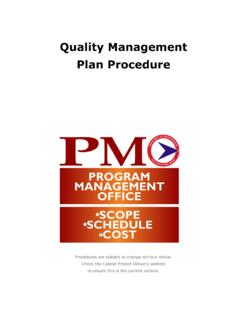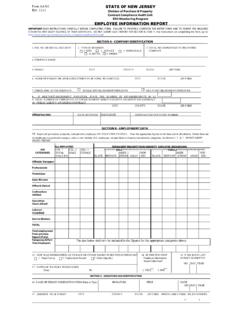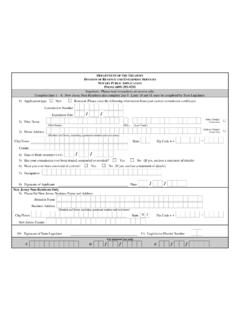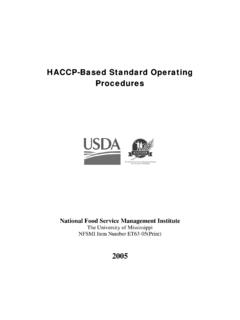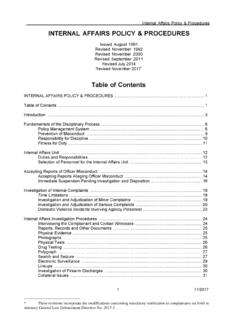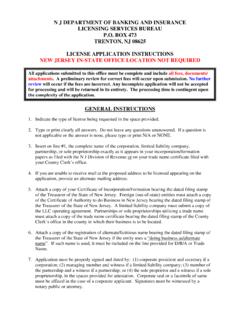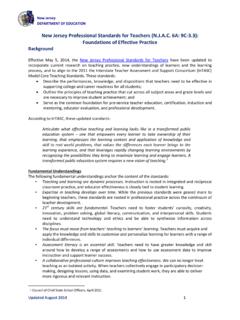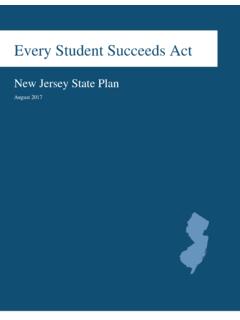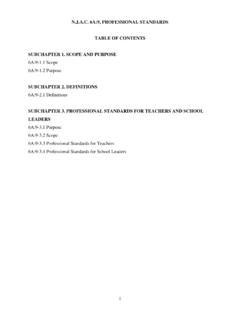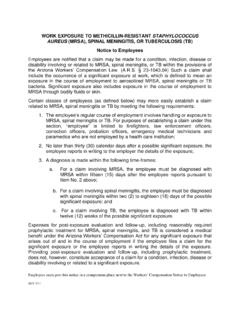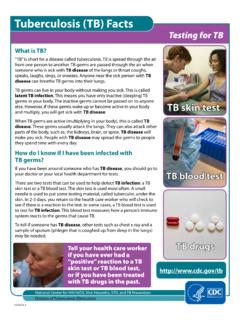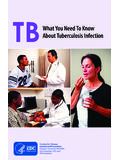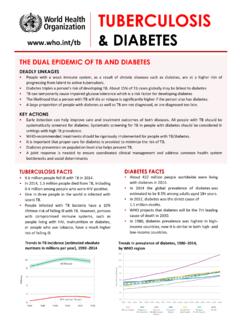Transcription of Charitable Remainder Trusts - New Jersey
1 Charitable Remainder Trusts TB-64 Issued June 29, 2009. Tax: Gross Income Tax The New Jersey Gross Income Tax Act under 54A:2-1 states that tax is imposed on the gross income of every trust , other than a Charitable trust or a trust forming part of a pension or profit-sharing plan. The Act does not exempt any other type of trust from tax. A Charitable trust for New Jersey Gross Income Tax purposes means a trust operated exclusively for religious, Charitable , scientific, literary or educational purposes. A trust cannot be deemed to be a Charitable trust unless it is operated exclusively, during all of the taxable years in question, for religious, Charitable , scientific, literary, or educational purposes, serves a public interest as opposed to a private interest and, under the governing instrument, there is no possibility that a noncharitable beneficiary will receive gains or income. See Burke, Clare and Hill, Trustees, v.
2 Director, 11 Tax 29 (1990). In contrast, a Charitable Remainder trust is formed to pay income to one or more noncharitable income beneficiaries. The donor donates property or money to the Charitable Remainder trust while continuing to use the property, receive income and/or provide for beneficiaries. After a specified period of time, the Charitable Remainder trust pays the entire Remainder amount to charity or uses the trust for a Charitable purpose. The terms of the trust are specified in the governing instrument. Charitable Remainder Trusts (CRTs) can be in three types and are treated similarly for New Jersey Gross Income Tax purposes; a Charitable Remainder Annuity trust (CRAT) (which pays a fixed dollar amount annually), a Charitable Remainder Unitrust (CRUT) (which pays a fixed percentage of the trust 's value annually), and a Charitable pooled income fund (which is set up by the charity, enabling many donors to contribute).
3 See Internal Revenue Code section 664. Only exclusively Charitable Trusts qualify for income tax exemption under the New Jersey Gross Income Tax Act. A Charitable Remainder trust , in contrast to a Charitable trust , has noncharitable beneficiaries and does not operate exclusively for Charitable purposes. Accordingly, a Charitable Remainder trust is not an exclusively Charitable trust exempt from New Jersey income tax under 54A:2-1 and income that is not distributed and which is not deemed to be permanently and irrevocably set aside or credited to a Charitable beneficiary is taxable income to the trust . Note: A Technical Bulletin is an informational document designed to provide guidance on a topic of interest to taxpayers and describe changes to the law, regulations, or Division policies. It is accurate as of the date issued. However, taxpayers should be aware that subsequent changes in the tax law or its interpretation may affect the accuracy of a Technical Bulletin.
4 The information provided in this document does not cover every situation and is not intended to replace the law or change its meaning. Page 1.
